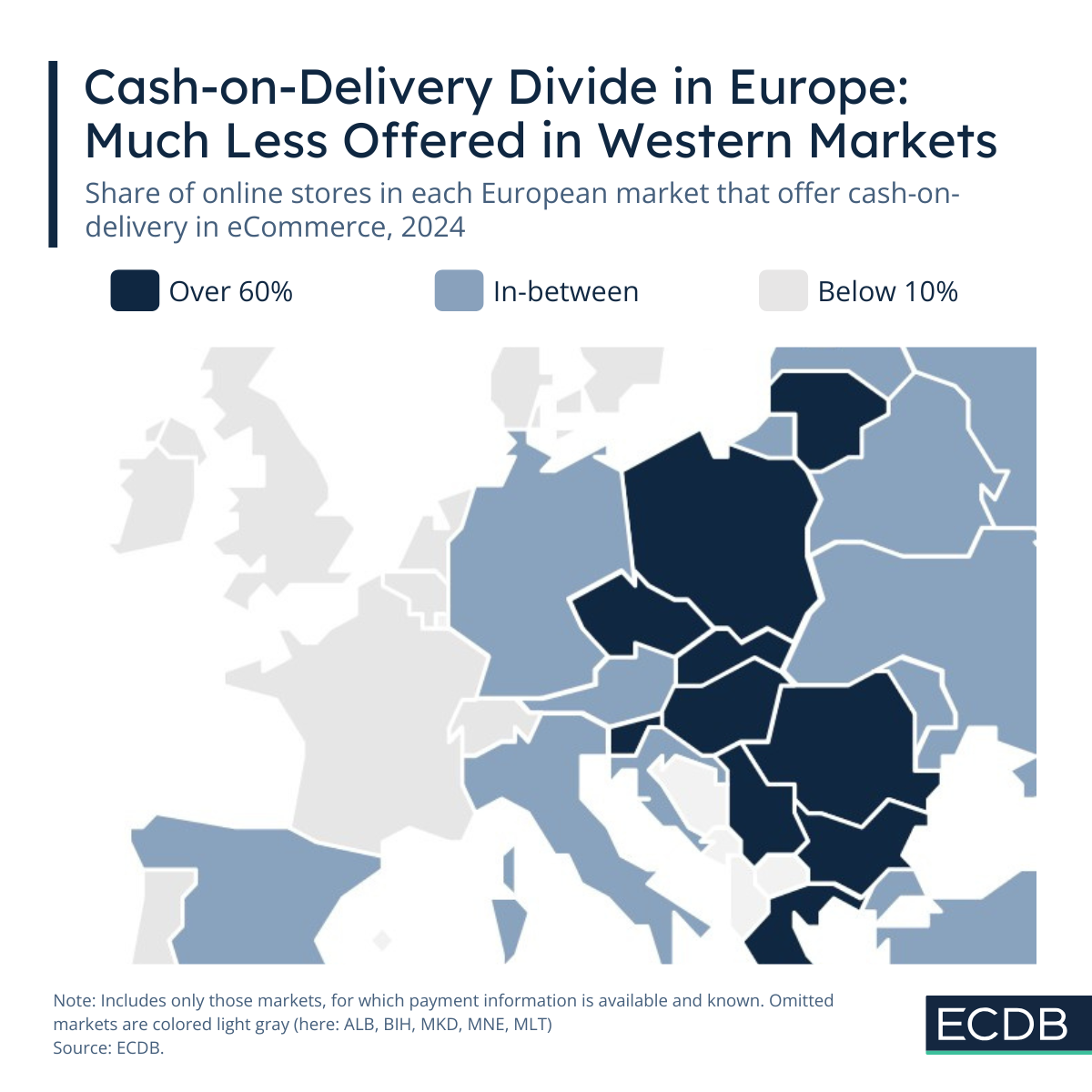
Blog
The ECDB Blog turns data from the Tool into eCommerce insights that illustrate which use you can make of our comprehensive data. It elaborates on relevant eCommerce news to help your brand gain a broader perspective on current retail trends and their effects. Our articles are carefully crafted to present to you the latest market trends, including retail, payment, shipping, transactions, cross-border and more.
Item 1 of 5
All Articles

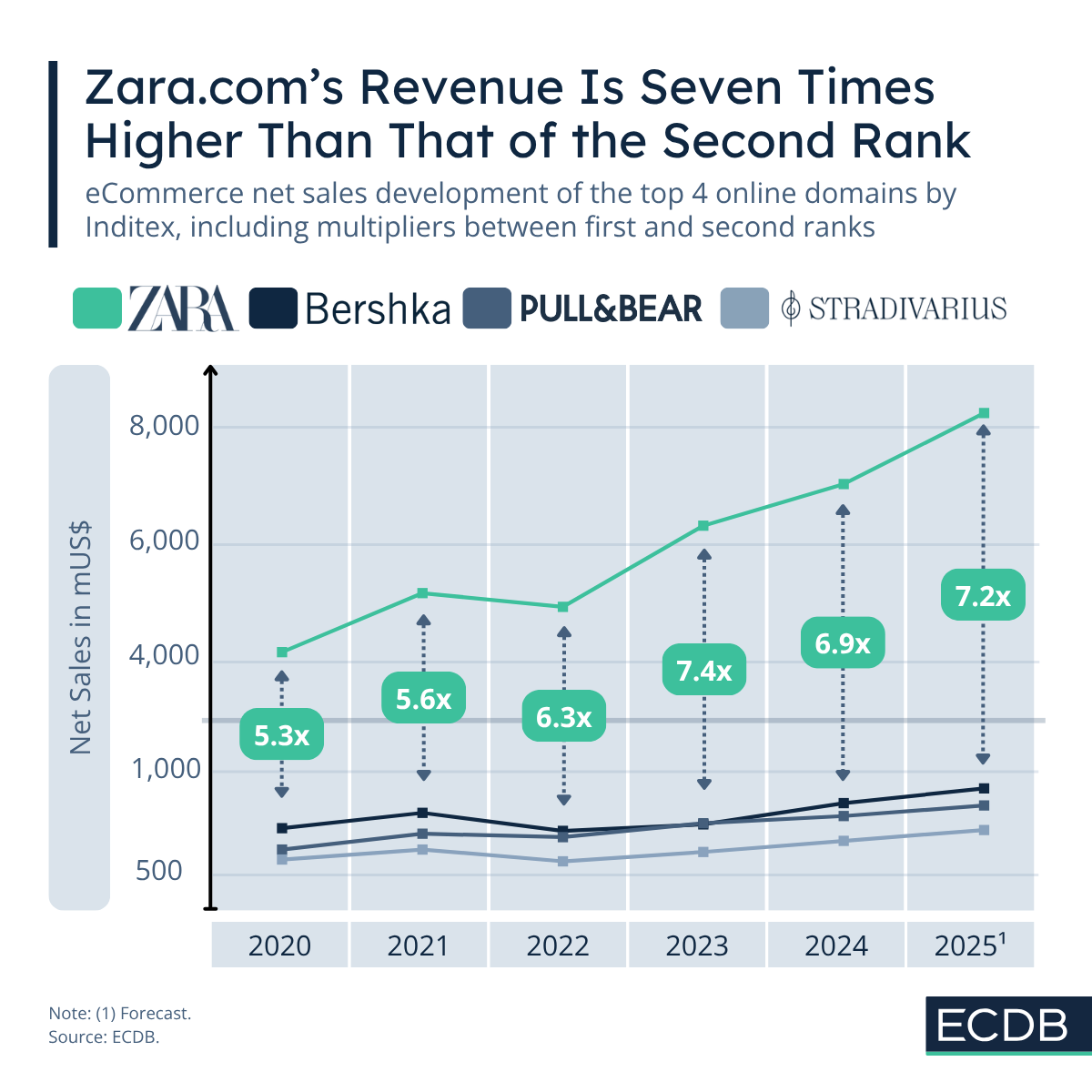
Three Inditex Domains Are Over US$1Bn Online Net Sales in 2025
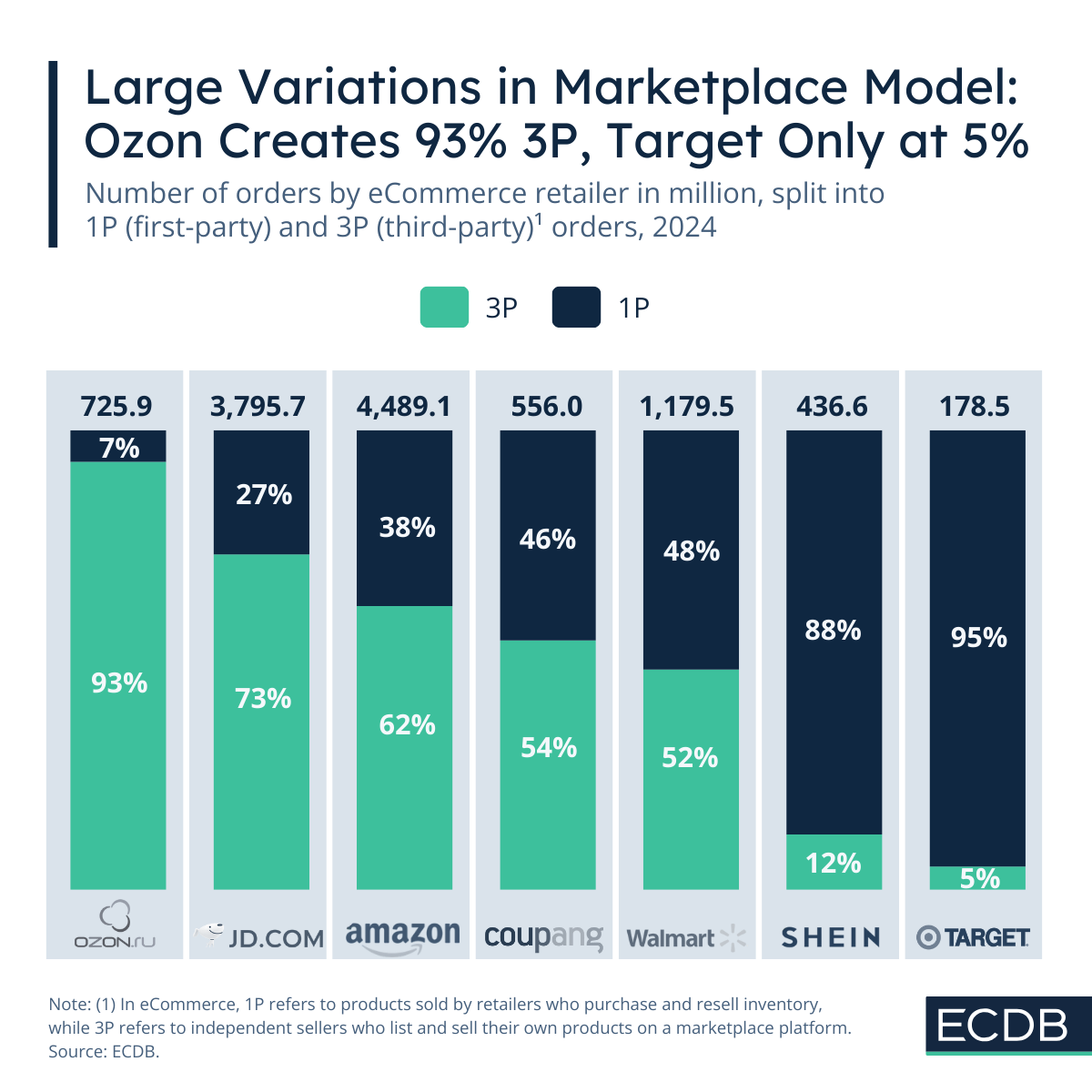
1P and 3P Orders in World eCommerce: Here Is How Top Retailers Operate
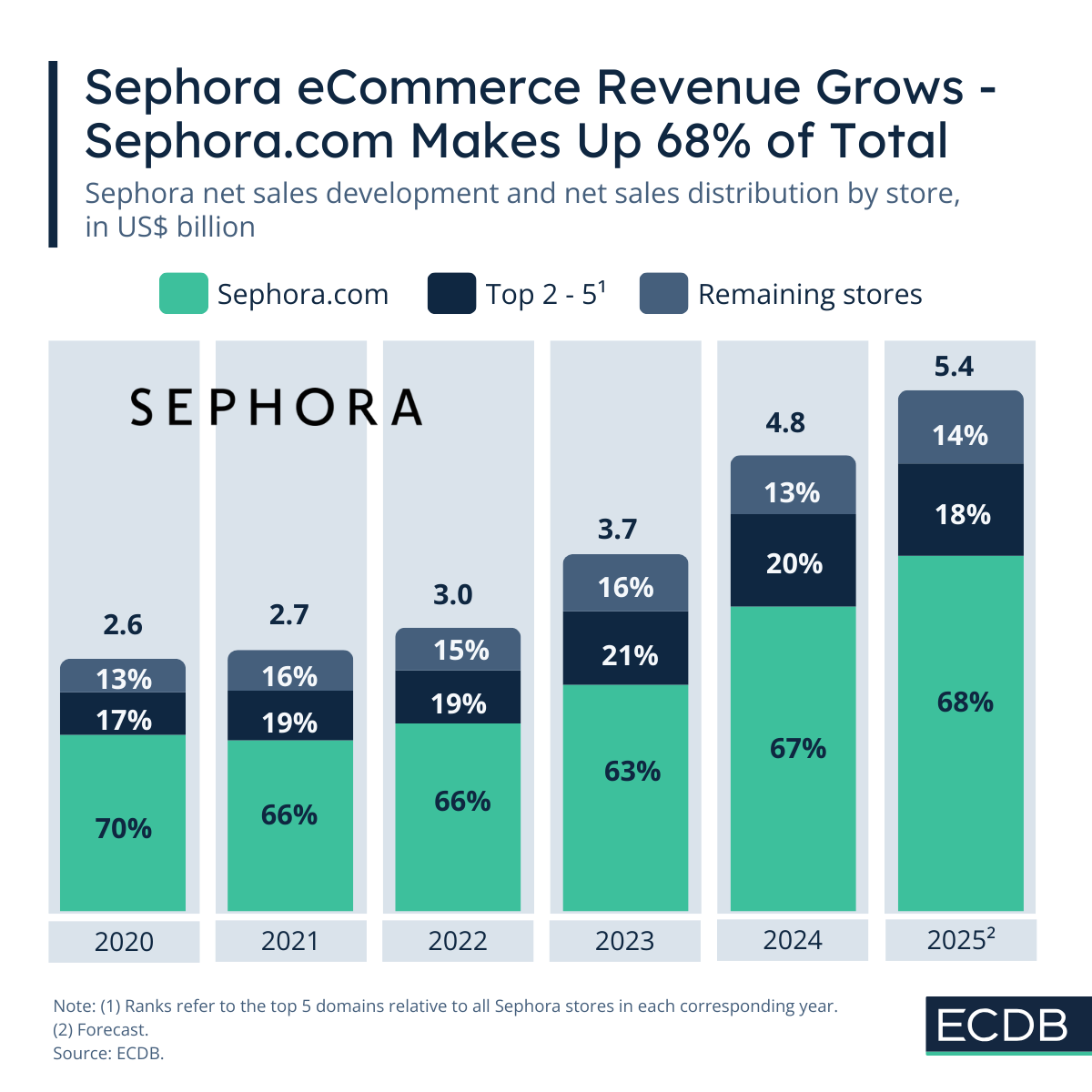
Sephora eCommerce Revenues Are Surging — Which Domains Take the Lead
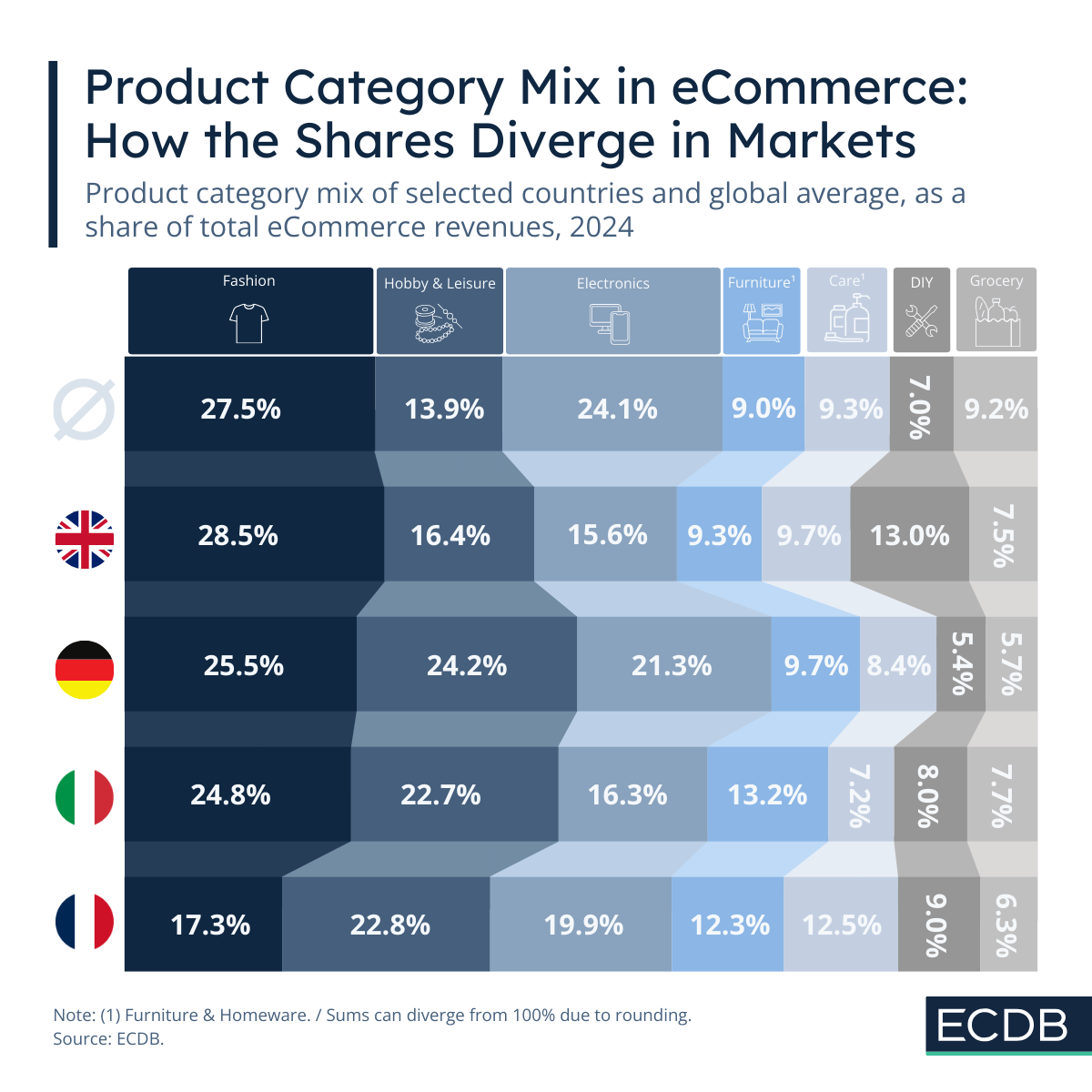
Product Category Mix in eCommerce: Where Which Category Performs Best
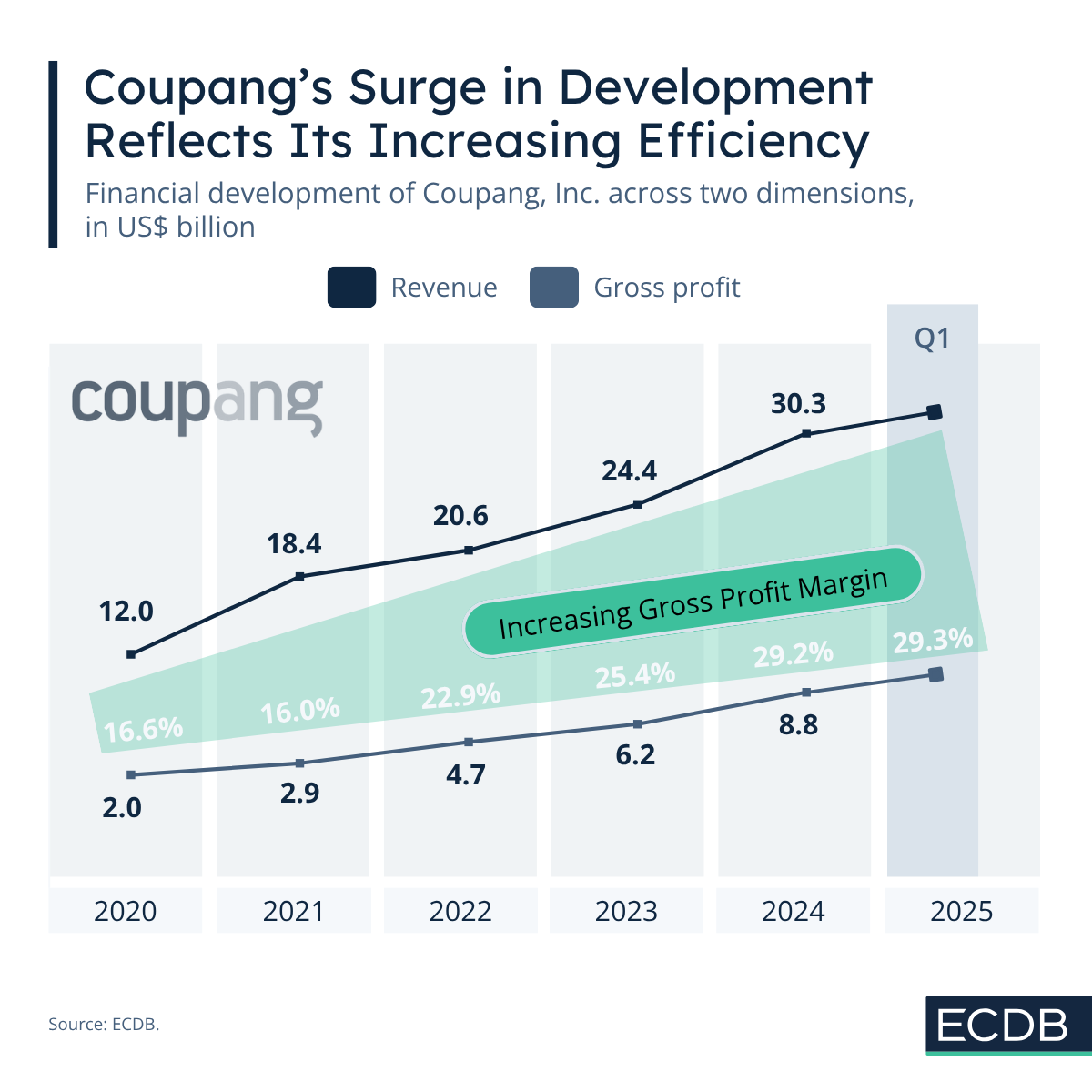
Coupang’s Investments Pay Off: Its Q1 2025 Company Results Indicate Growing Efficiency
Ready To Get Started?
Find your perfect solution and let ECDB empower your eCommerce success.